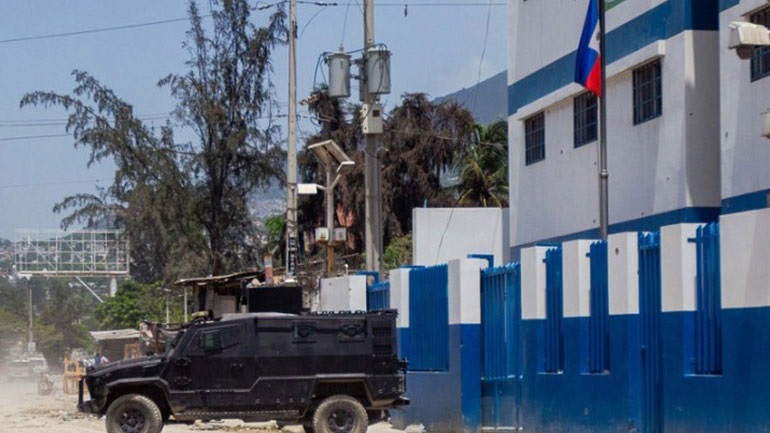Fifteen people, including a journalist and an opposition activist, were killed Tuesday night (Wednesday, June 29) in the Haitian capital, the police chief said, adding that the killings were carried out in retaliation by a fellow police officer who had killed a few hours earlier.
Photos of the bodies of journalist Diego Charles, who fell to the ground, and Antoinette Dickler, a feminist and member of the opposition party, at the wheel of her car, were uploaded to social networking sites by Haitian users in the early hours of the morning. Both victims were 33 years old.
“In retaliation for the murder of Gerby Zifrar, the police officer who was killed, his allies staged an attack that resulted in the death of 15 civilians. “Among them were Vision 2000 journalist Diego Charles and Antoinette Dickler,” said Eathenel police chief Leon Charles, without elaborating on the allegations.
Gerby Zifrar was a spokesman for the SPNH-17 police union, which is in open conflict with the police leadership. The director general of the Haitian police also said that an investigation is being carried out “to find all the perpetrators and accomplices of the crimes committed”.
Leon Charles’s statements provoked reactions from journalists and non-governmental organizations, who openly questioned their validity. “To go out with such ease and say ‘we know that the double murder of Diego Charles and Antoinette Dickler was done by that union’ is something that was done in too much of a hurry and, above all, too lightly.” stressed Marie-Rosie Auguste Duchenne of the National Network for the Defense of Human Rights.
Maxnold Guillaume, brother of the popular Haitian singer Rutzhel Guillaume, is also among the fifteen victims, the latter announced in her Creole language posts on her social media accounts.
The massacre took place while gang activity in Haiti has turned into a scourge since the beginning of the year. In early June, clashes between armed groups in the western part of the capital of the poorest country in the western hemisphere forced thousands of residents of run-down neighborhoods to flee their homes.
“We are in a state of denial of human rights, of depravity of life. “We can not continue like this, counting corpses every day,” said Ms. Dusena.
The US embassy expressed its concern after the massacre. “The United States is deeply concerned about the loss of life and general insecurity due to gang violence,” he said via Twitter. “Violence, corruption and impunity are hindering the achievement of Haiti’s development goals and the expectation of the Haitian people to have a better life for a very long time.”
For their part, after the murder of their colleague, media professionals in Haiti did not seem to have many illusions. As always, “the judicial authorities will announce that they are conducting investigations – which will have no effect. We are used to it “, was the reaction of Jacques DeRozier, the general secretary of the union of Haitian journalists.
The iconic case of the April 2000 assassination of the most famous Haitian journalist of the time, Jean Dominique, has remained and remains unsolved to this day. “There was no justice for Jean Dominique, just as there will be no justice for Diego,” said Assad Volci, head of the Gazette Haïti, a news website with which the deceased worked for two years.
Photojournalist Vladimir Leganer never returned from the report he went to do in March 2018 in the Martisan district, now a theater of gang warfare. Police have not yet released the findings of the examination of the genetic material collected from human remains after his disappearance.
The investigations into the murders of two other Haitian journalists, committed in June and October 2019, remain fruitless to this day.



